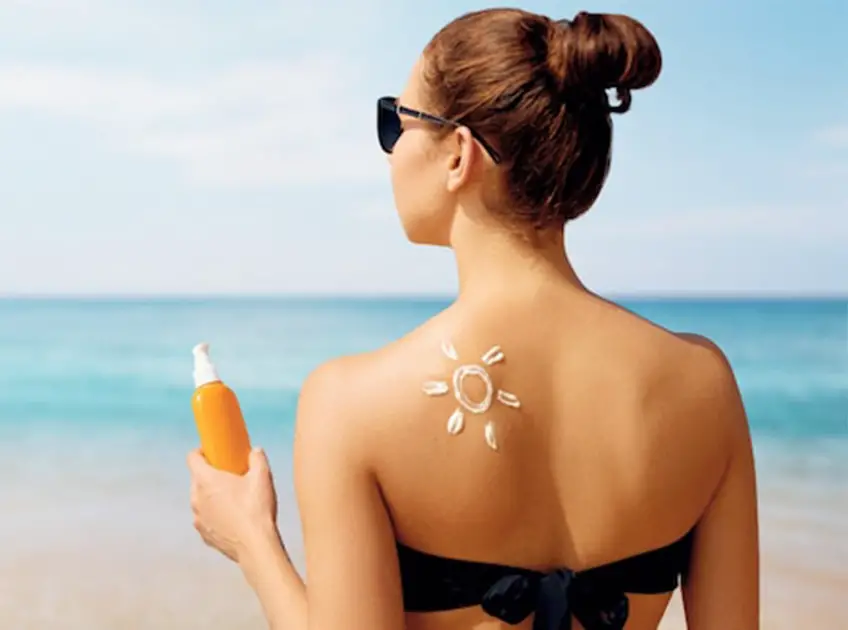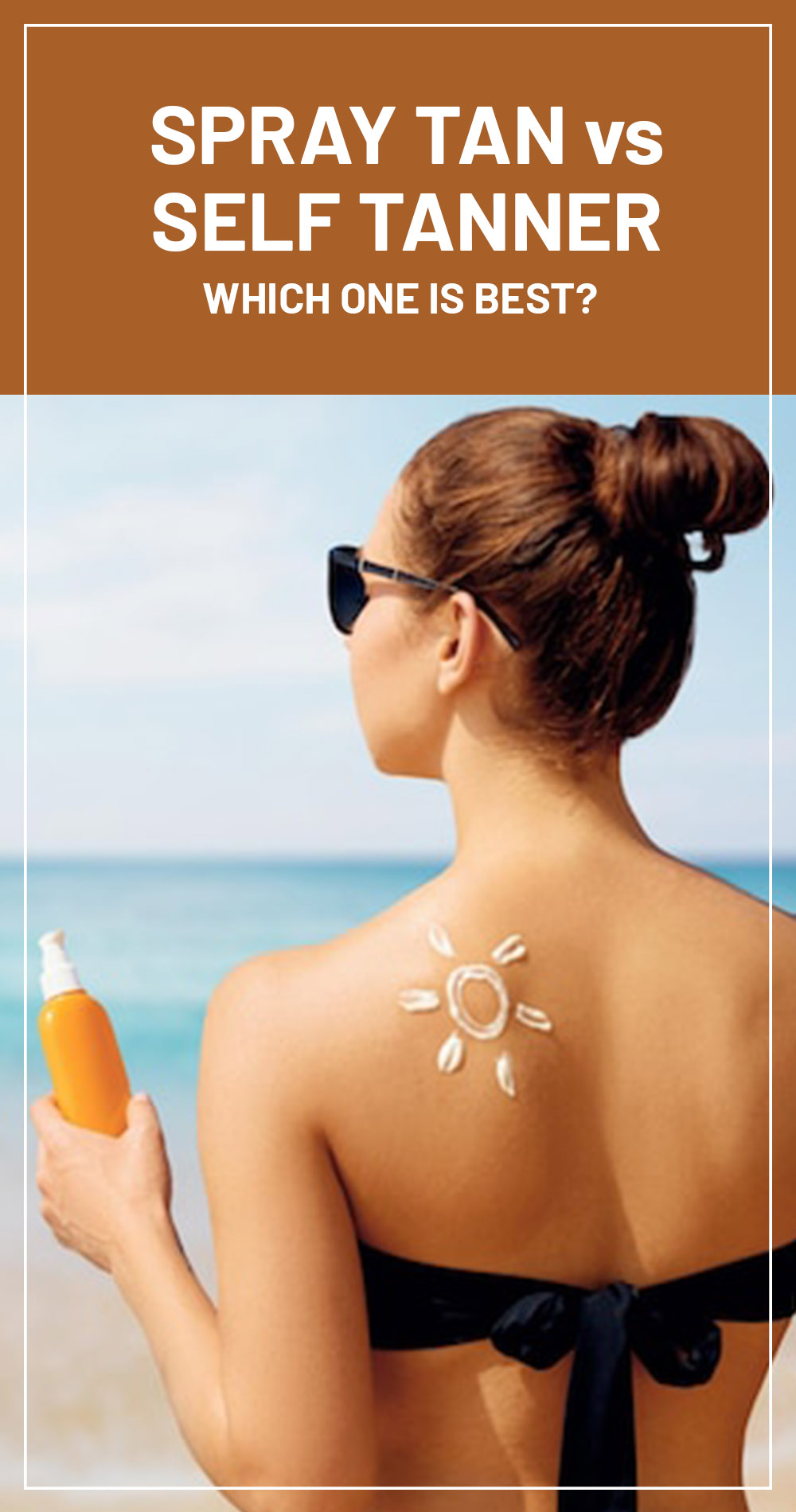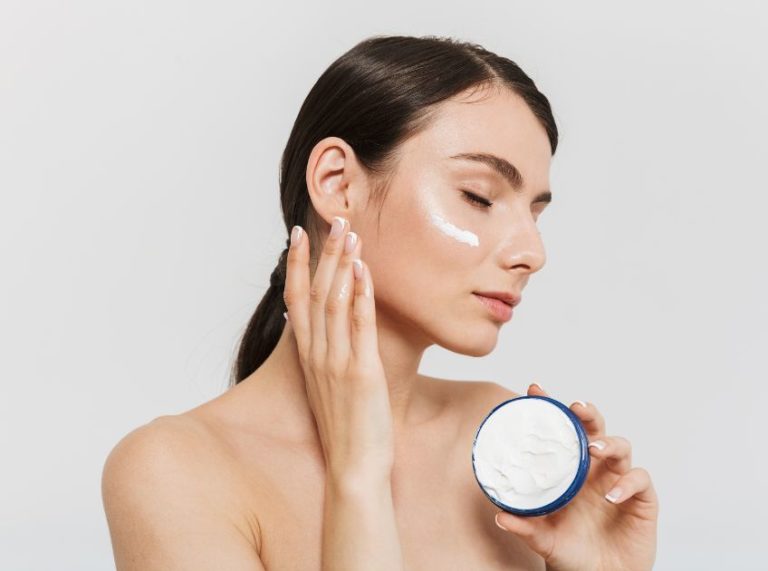
Important: This article is for informational purposes only. Please read our full disclaimer for more details.
The health hazards of sun tanning and tanning beds are well-known. Both emit harmful UV rays that make skin vulnerable and prone to damage. In severe cases, the overexposure of skin to UV rays may cause skin cancer. It is when a spray tan and self-tan seem better and safer alternatives to get the stunning golden bronze glow. They are safe and do not pose any health risk. All you need is to spend some time in a salon and get it done. If you avoid suntan and tanning beds and wondering which is better, spray tan or self-tan, this article will help. Here we will discuss how they are similar, how they differ, their pros and cons, and the risks so you can decide which is best for you.
Spray Tan Vs Self Tanner
How Do Spray Tans And Self-tanners Work?
There are different chemicals and ingredients in self-tanners and spray tans; however, the active ingredient in both is DHA- dihydroxyacetone. DHA works by creating a chemical reaction with dead cells on the skin’s surface layer. As a result, the skin darkens temporarily and stimulates a tan. Irrespective of other ingredients in self-tanners or spray tans, the DHA leads to tanning.
What Is Spray Tan?

Spray tan is a professional spray tanning technique that produces a natural-looking tan quickly. Since spray tan has no health hazards, it is highly preferred to get a tanned skin tone.
Spray tan methods can be broadly classified into two
- Spray Tan Booth- As the name implies, a spray tan booth consists of several nozzles that emit tanning solutions from different sides. Once inside the spray tan booth, the body gets covered with tanning solution evenly, leading to a quick, even, and efficient tanning.
- Spray Gun or Airbrush Gun- Many salons use a tan spray machine, also known as an airbrush or spray gun. Besides, you may also appoint freelancer artists who can come to your home with their spray guns and give your skin a gorgeous tan.
They carry a portable machine that offers the same level of consistency and control as tanning booths to guarantee flawless and even tanning.
What Is A Self-tanner?

Self-tanners come in the form of spray tan bottles that are convenient and easy to use. You can use such bottles yourself and develop tanned skin. Just like spray tans, the self-tanners also consist of DHA as the major and active ingredient. Even though DHA is a safe and FDA-approved topical ingredient, regular and long-term use may show some side effects.
- It has been found that DHA releases free radicals that can cause oxidative stress, leading to premature skin aging.
- With longer use of DHA, you may experience fine lines, wrinkles, and hyperpigmentation.
- DHA lowers Vitamin D levels and is linked to long-term DNA damage.
While these are true for DHA, the same applies when you overexpose your skin to the sun for a natural tan. So, all in all, every method of tanning- be it natural (sun) or fake (tanning beds, spray tan, self-tan) is health hazardous when done in excess. Tanning your skin occasionally is a good idea and a wise decision. For instance, if you are going for some special occasion and want to hide your pasty white complexion, you can use your self-tanner or spray tanner. However, if you love your dark golden bronze skin tone developed through tanning and want to maintain it throughout the year, it is better to choose DHA-free or DIY tanning solutions.
[ Read: How Long Does a Spray Tan Last? ]
Which Is Better- Spray Tan Or Self-tanner?
Returning to where we started, spray tan vs. self-tan, let’s consider their pros and cons individually.
Pros Of Spray Tan
- They are easy to apply
- Helps to get uniform and even tan as spray squirts micro-droplets to the body.
- Ensures none of the spots is left without spraying.
- It can help you achieve a darker tan if the concentration of DHA is stronger.
Cons of Spray Tan
- Comes with a hefty price tag.
- There is a risk of internal DHA exposure through inhaling.
- It is a time-consuming process.
Pros of Self Tanner
- It is a lot cheaper than spray tans.
- Less time is consumed in its application.
- Offers privacy as you can do it on your own.
- It is safe as DHA in self-tanners is FDA-approved.
Cons Of Self-tanners
- Require expertise for even precise application to avoid getting steaks and uneven results.
- It could be messy as self-tanners take time to dry.
- You might end up staining your clothes or bed sheets.
- Reaching your back and applying it evenly is a task if you are doing it yourself.
[ Read: 5 Best Self Tan Back Applicator ]
Final Words
Since self-tanners and spray tans work in the same way, as they consist of the same active ingredient, the results are often the same. While spray tans are easier, self-tanners may get messy. Likewise, when it comes to price, self-tanners save a lot of bucks. So, what’s good for you depends entirely upon your priorities. If you are trying to decide between getting a spray tan or getting a self-tanner, they are both viable options.
You Might Also Like:
- Can You Use Tanning Bed Lotion Outside? How To Use It?
- Does Tanning Lotion Expire? How Long Will Tanning Lotion Last?
- 5 Best Tanning Lotions For Sensitive Skin
- Does Sunscreen Prevent You From Tanning?
- What To Wear In A Tanning Bed
- Can You Wear Makeup After Spray Tan? How Much Time To Wait
- Can You Still Get A Tan from Clouds? How long should I sit
- What To Wear During & After A Spray Tan: 4 Safety Tips
- 3 Natural DIY Self Tanner: That Doesn’t Wash Off
- How To Fix An Orange Spray Tan
- Does Baby Oil Help You Tan?- Is It Safe And Effective To Use?
- How To Self Tan Your Face Perfectly?
- 7 Best Home Remedies To Remove Tan
- How To Use Coconut Oil For Tanning?
- How Often Should You Spray Tan? How Long Does It Last?
- How To Exfoliate Before A Spray Tan?- Prevention & Safety Tips
















